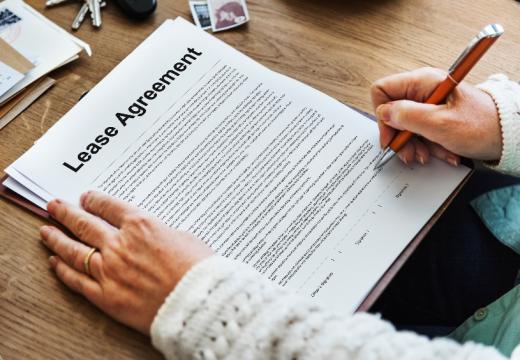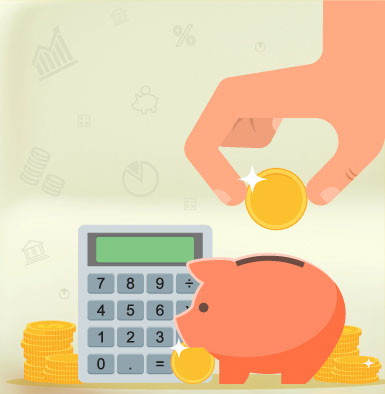Lease Agreements in Ghana: A Closer Look at Significant Clauses
Lease Agreements in Ghana: A Closer Look at Significant Clauses

A lease agreement is a contract between a landlord and a tenant signed by both parties before moving in. It's an important, legally binding document that spells out exactly what both are responsible for. The lease agreement document specifies terms like how much rent you'll pay each month and how much deposit you need to put down.
Oftentimes, lease agreements can seem scary because of the complex language typically used, but they don't have to be! This blog post aims to break down these confusing landlord and tenant clauses for you, explaining what they mean and how they affect your whole rental experience in Ghana.
The Common Lease Agreement Clauses in Ghana
First, we will discuss the most common lease agreement clauses in Ghana. Be it a landlord, tenant, or agent, these clauses are in almost every lease agreement you will ever come across in Ghana.
1. Party identification: Every lease agreement needs to make it clear who's involved. Normally, it'll be between you, the renter (tenant), and your landlord. The lease document should also list everyone who will be living in the apartment. This way, it's clear who's responsible for following the rules of the agreement.
2. Description of the rental property: Your lease agreement should clearly spell out exactly where you're renting. This means listing the full address, including the street name, number (if it's a house), city, and even the neighbourhood if it helps. Having the whole address written out avoids any mix-ups about where the rental property is and makes it easy for everyone involved to find it.
3. Tenancy period: The lease agreement needs to indicate how long the rental agreement lasts. This is called the lease term, or tenancy period. It's basically the timer on your rental agreement. The lease will have a start date, which is the day you can move in, and an end date, which is the day your renting period ends.
4. Rental price & requirements: This section of the lease agreement explains how much rent you owe. It'll break down the monthly rent amount, as well as the total rent you'll pay for the whole lease. It will also be super clear when the rent is due each month, what happens if your rent is late, and how you can pay your landlord. The lease agreement will also specify who is responsible for paying for utilities (like electricity, water, and trash) and what happens if you use more than usual.
5. Deposit amount & terms: This part of the lease talks about your security deposit. It'll explain how much it is, when you need to pay it, and why your landlord might be able to take some of it out (like for unpaid rent or repairs for damage you caused beyond normal wear and tear). Most importantly, it will also explain when you get that deposit back at the end of your lease!
6. Tenant/landlord responsibilities: This lease clause gets into the nitty-gritty of who's responsible for what. It covers things like keeping the place up on maintenance and making sure the property is safe. Leases in Ghana can vary here - some might just have a basic rundown, while others might have a whole list of rules about what you can and can't do.
7. Party signatures: This might seem obvious, but you and your landlord need to sign the lease agreement to be official. Think of it like catching a handshake - the signatures make the agreement a done deal.
Key Clauses Often Omitted By Ghanaian Landlords
Now that we have identified some of the most standard lease agreement clauses in Ghana, let’s dive into some crucial lease clauses that Ghanaian landlords fail to include in a lease agreement.
1. Late Rent Payment Penalty Clause
This part of the lease explains what happens if your rent is late. Landlords often include a late fee to encourage tenants to pay on time. The lease will spell out exactly how much the late fee is or how much interest will be charged on late payments.
2. Early Termination Clause
This lease clause explains what happens if you need to move out before the lease ends. It'll say how much notice you need to give your landlord (usually a few months) and what fees you might be responsible for. Early termination fees can help cover the landlord's costs of finding a new tenant. The clause might also mention other things to consider, like leaving the place clean and undamaged.
3. Maintenance and Repair Clause
Most landlords exclude This important lease clause when preparing a lease agreement in Ghana. Meanwhile, the lease agreement should make it crystal clear who's responsible for fixing things throughout your rental period. This is important to avoid any arguments about your deposit at the end of your lease.
In Ghana, for example, the law says your landlord needs to keep the place safe, clean, and free of hazards. But the lease will also say who pays for regular maintenance and smaller repairs. It's a good idea to agree on this beforehand to avoid any surprises. This has resulted in the eviction of many tenants across the country.
4. Dispute Resolution Clause
Imagine you and your landlord disagreeing about something in the lease. A dispute resolution clause is like a game plan for working things out without going to court. This can save you both a lot of time and money. Basically, it sets up a clear process for dealing with any disagreements that might pop up during your rental period.
5. Property Inspections Clause
Another lease clause landlords in Ghana fail to include in rental agreements is the right to inspect the property. This part of the lease explains when your landlord can come into your apartment. Normally, they need to give you 24 hours' notice before entering, unless something urgent happens, like a water leak. This is to make sure they respect your privacy. It's important to have this clear in the lease so there are no misunderstandings and nobody feels like their space is being invaded.
6. Rules and Important Policies
Every lease agreement should lay out a list of important rules and what could happen if they are violated. This might include things like no loud parties after a certain hour, keeping the place clean, and (of course) no illegal activity on the property. Landlords typically include a rule against illegal activities to protect themselves from getting in trouble. It's good for everyone to be on the same page about what's expected, so there are no surprises down the line.
Conclusion
Having a lease agreement with all the important stuff laid out is like having a rulebook for your rental experience. These lease clauses, when considered, will help Ghanaian landlords protect their property and rights and keep things running smoothly and legally for both you and them.

 French
French




